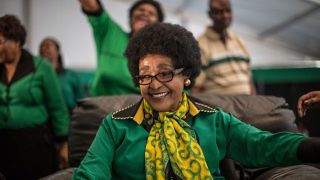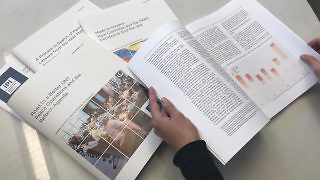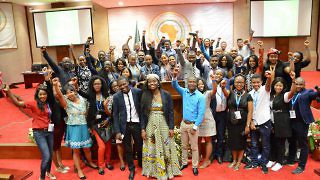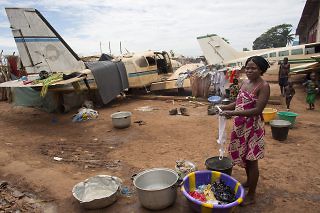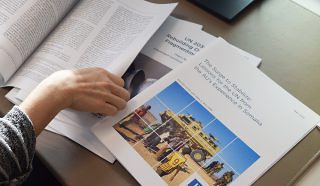The top Global Observatory reads of 2018 were dominated by two series: one on the controversial “Cruz report” on peacekeeping fatalities and injuries; and another on Secretary-General António Guterres’ Action for Peacekeeping (A4P) initiative aimed at reforming United Nations peacekeeping.
Further Reading
-
-
Winnie Mandela will be remembered as a person of great courage who worked for a greater cause throughout a very difficult life.
-
In line with the call of the secretary-general, the top reports published by IPI in 2017 provide insights into how the international community can best respond to some of the most pressing challenges to global peace and security by investing in conflict prevention, supporting mediation, and sustaining peace.
-
Africa’s men and women are now faced with the question of whether they can bring about a new African polity based on the principles of democracy and human rights or whether the politics of entrenched and often corrupt leaders who stayed in power for decades will continue.
-
While North Korea’s missile program, the shift in US policy in the international arena, and the ongoing conflicts in Syria and Yemen occupied the attention of news media in 2017, Global Observatory readership was dominated by articles on the UN.
-
The Global Observatory has collated a few of the most creative, useful, and powerful visualizations from 2017 that shed further light on a global issue or that challenge preconceptions.
-
Governing Global Health’s greatest strength lies in its rich empirical basis. The repository of data upon which the authors draw goes unrivaled by similar scholarship, and they build an engaging narrative from the often dry necessities of budgeting technicalities and organizational structure.
-
Louisa Lombard’s State of Rebellion explores the ambitious process of state-making amid the conflict in Central African Republic.
-
IPI’s top five reports from 2016 include an examination of UN peacekeeping mandates that involve stabilization measures and a consideration of the future of the multilateral system and the UN.
-
Analyses of extrajudicial killings in the Philippines and the challenges for the incoming United Nations secretary-general were among the most read posts on the Global Observatory in 2016.

